Post by Hannah Shawo, regular Northwest Noggin outreach participant and undergraduate in Psychology pursuing an Interdisciplinary Neuroscience minor at Portland State University.

Last Tuesday we made our way to Fort Vancouver High School, where we met students bright and early at 7:25 AM. As someone who tends to go to bed quite late, waking up before the sun rises was incredibly difficult and definitely helped me sympathize with the students!

“I think sleeping was my problem in school. If school had started at four in the afternoon, I’d be a college graduate today.”
— George Foreman
LEARN MORE ABOUT SCHOOL START TIMES & TEENAGE BRAINS:
Hey Vancouver: Let Kids Sleep!
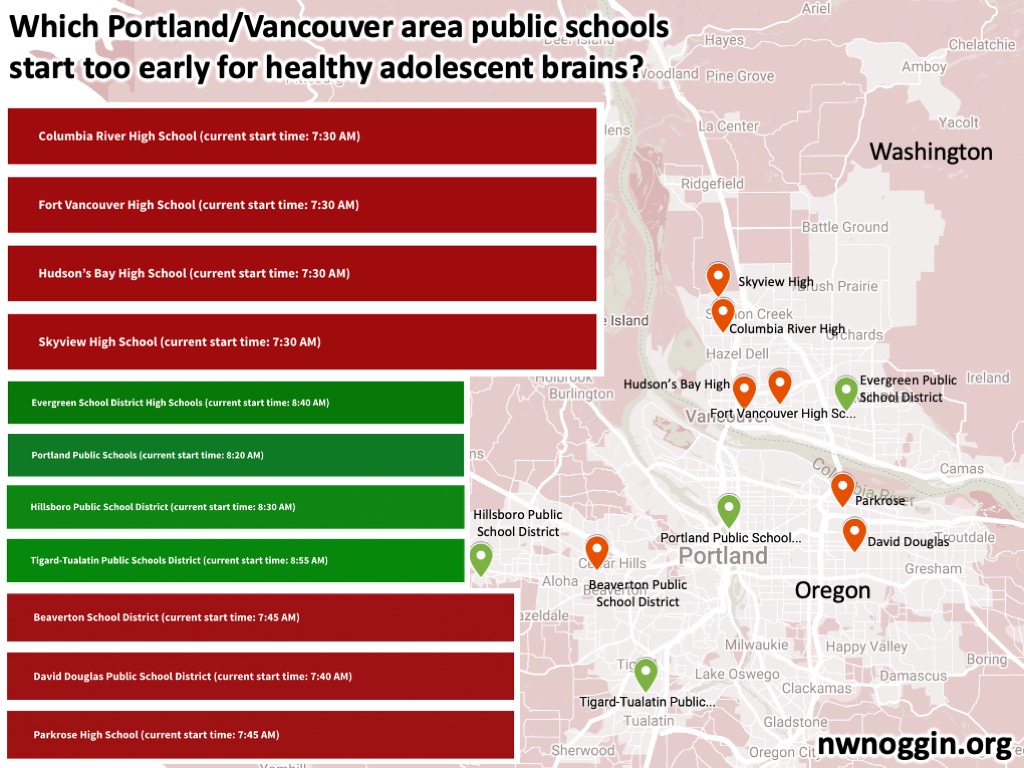
Having to wake up that early is physically and mentally taxing for adolescents. Adolescence is a critical time for building a healthy foundation and a healthy brain, and a lack of sleep can definitely throw off that process. It’s long past time for the Vancouver Public School District to join neighbors in Evergreen and Portland by delaying the start of high school to a safer and more reasonable time for brains.
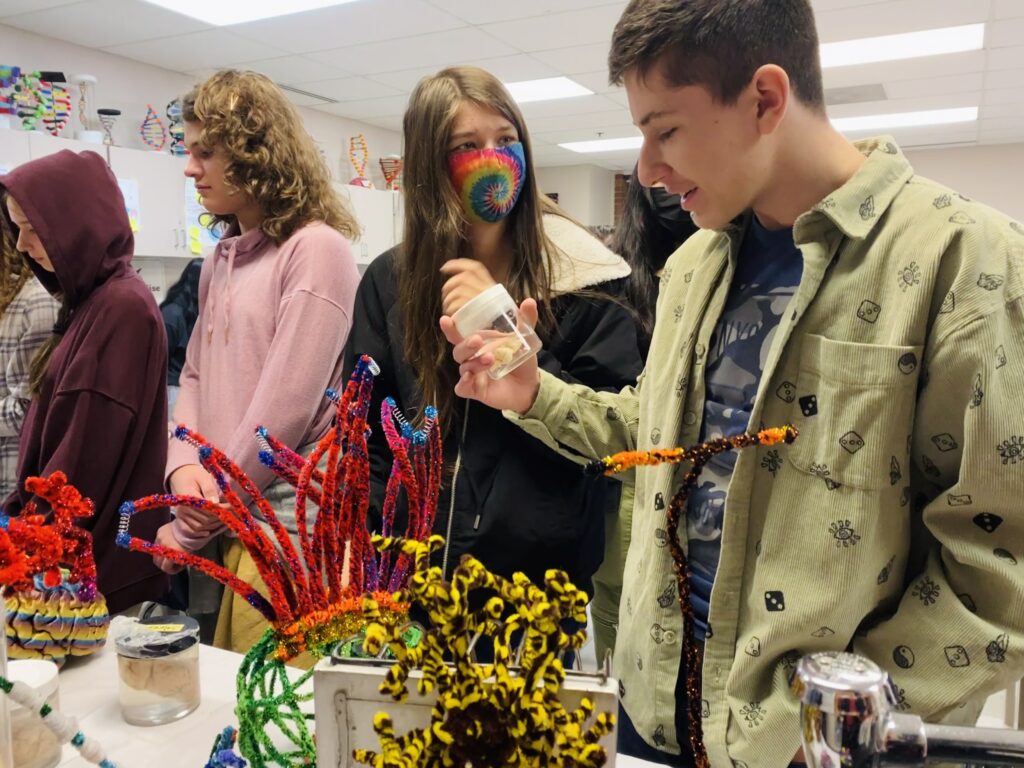
“The American Academy of Pediatrics recognizes insufficient sleep in adolescents as an important public health issue that significantly affects the health and safety, as well as the academic success, of our nation’s middle and high school students…the evidence strongly implicates earlier school start times (i.e., before 8:30 am) as a key modifiable contributor to insufficient sleep, as well as circadian rhythm disruption, in this population. Furthermore, a substantial body of research has now demonstrated that delaying school start times is an effective countermeasure to chronic sleep loss and has a wide range of potential benefits to students with regard to physical and mental health, safety, and academic achievement.”
— School Start Times for Adolescents
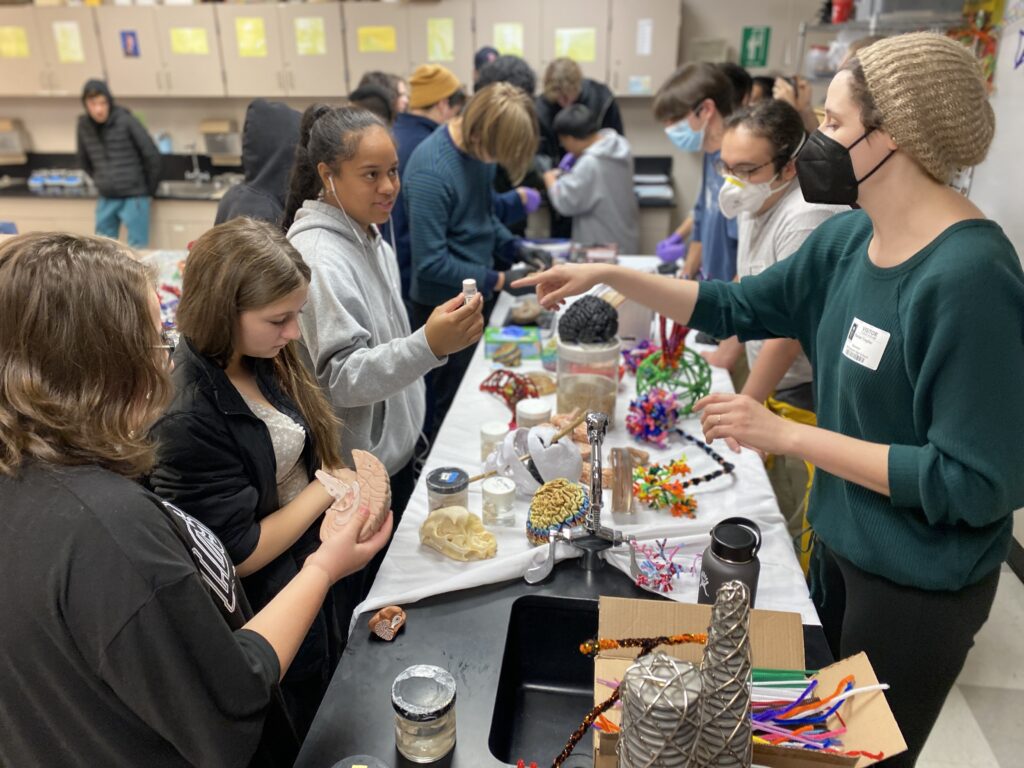
LEARN MORE: Later school start times may reduce sleep deficits for high school students
LEARN MORE: Later School Start Time: The Impact of Sleep on Academic Performance and Health in the Adolescent Population
LEARN MORE: Morning brain: real-world neural evidence that high school class times matter
COMING SOON: Noggin post by Marc Chenard on sleep, brains and area school start times
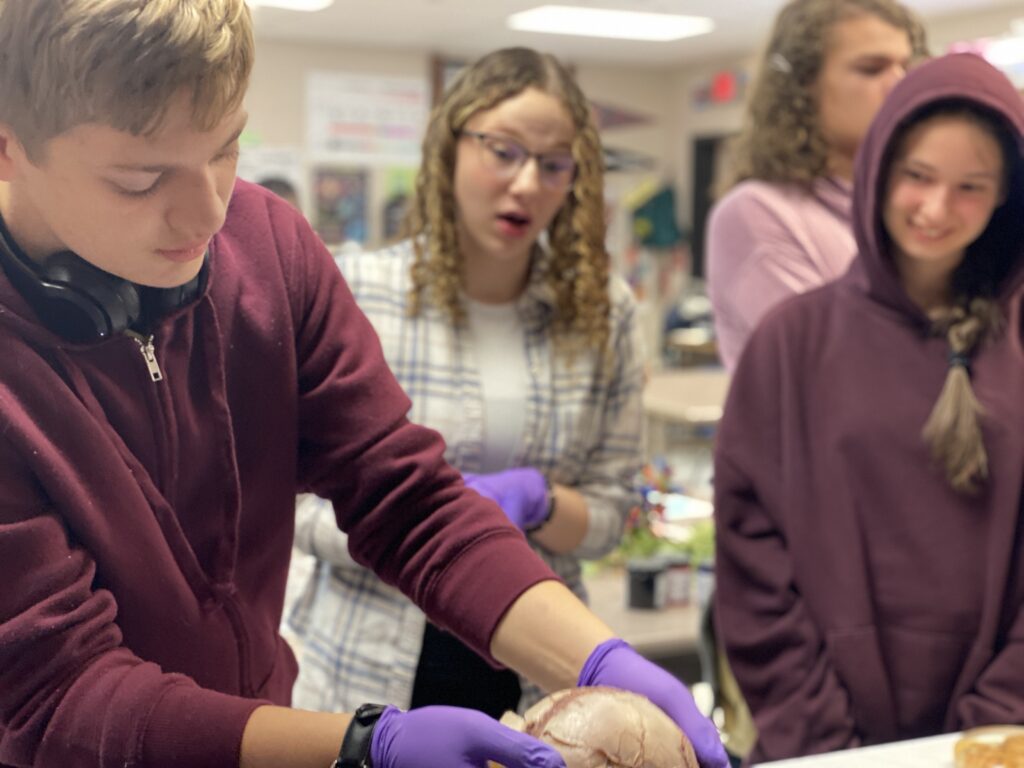
After talking with some of the students it was apparent that high schoolers have a lot on their plate. I wondered about how their mental health was faring in the face of so many responsibilities and the challenges of the last few years.
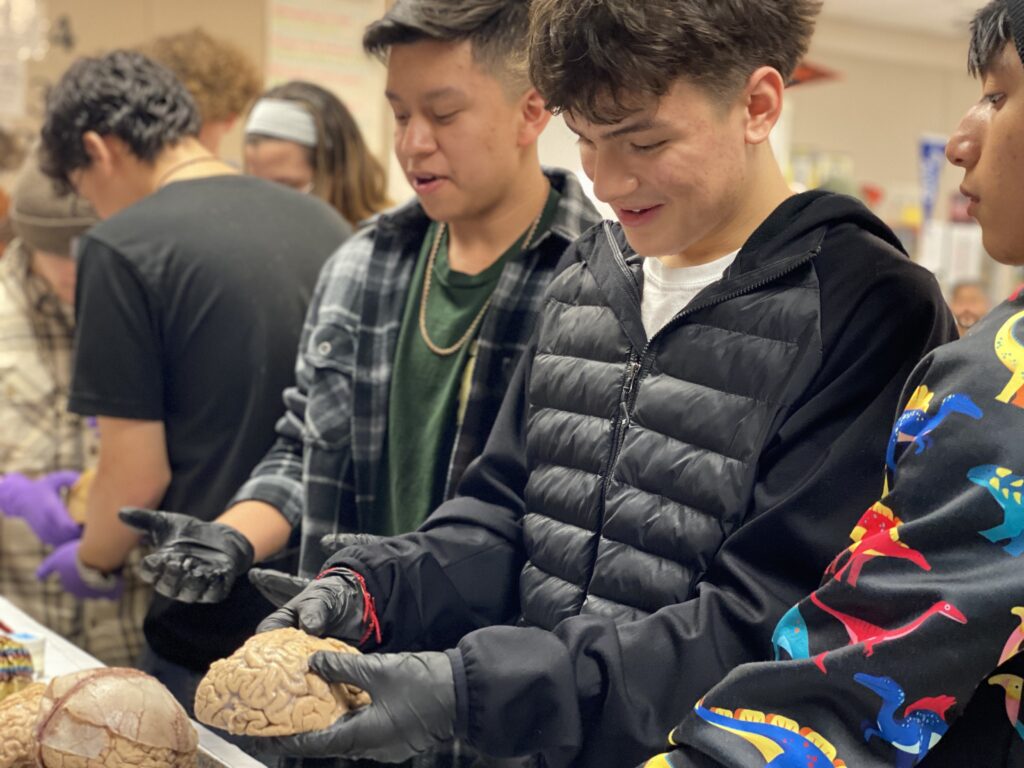
My fellow early rising Noggin volunteers included Anna Traylor, Natalie Partipilo, Alex Heinrich, Marc Chenard, Conner Corbett, Roman Cimkovich and Kristin Preston, all undergraduates from Portland State University, and Joey Seuferling, a long time Noggin participant who is currently in medical school at the Elson S. Floyd College of Medicine in Spokane!
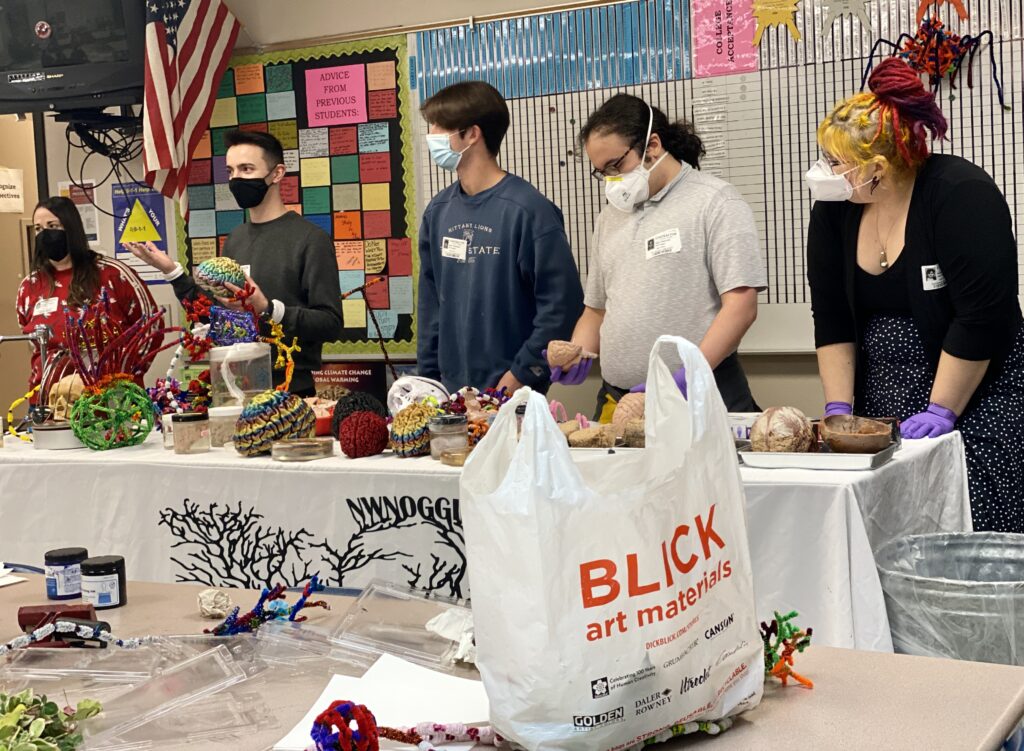
Noggin has visited students at Fort Vancouver and their biology teachers Coreyanne Russell and James Cederstrom for many years, and sleep is always a major topic of discussion.
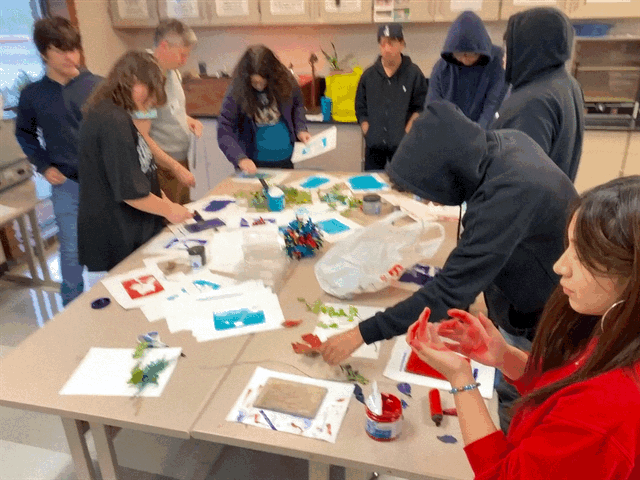

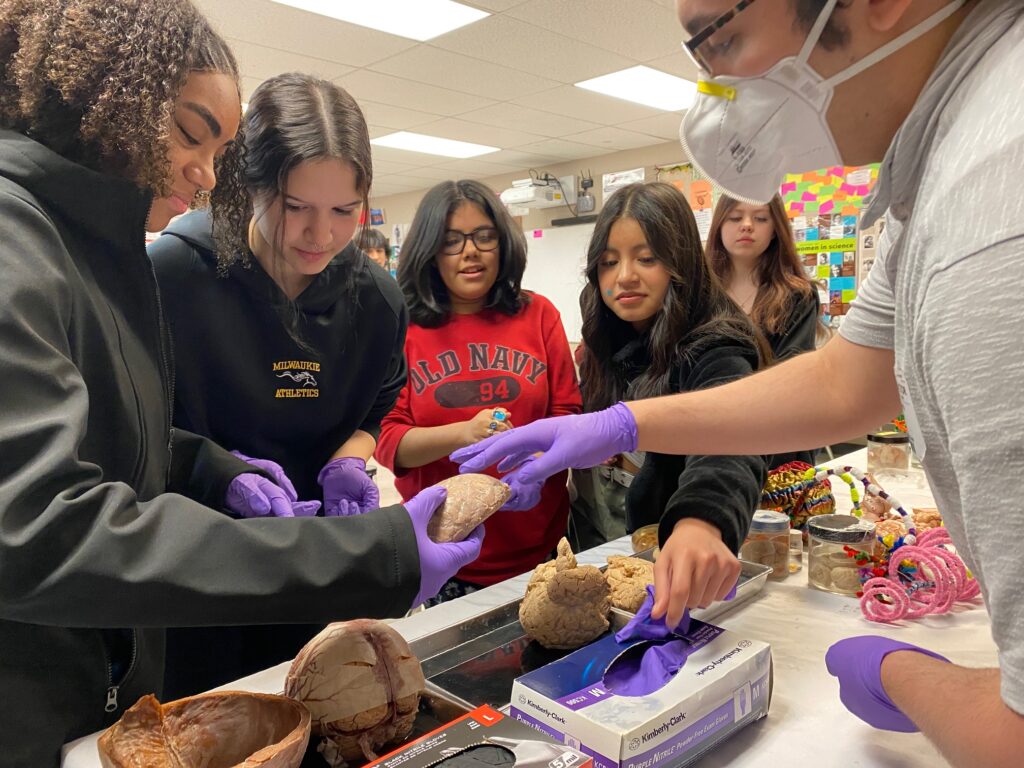
LEARN MORE: Tired Trappers at Fort
LEARN MORE: Uploading your brain from Vancouver
LEARN MORE: Why do you study the brain?
LEARN MORE: What will your students remember in five years?
LEARN MORE: Trap Squad!
LEARN MORE: Brains, biofeedback & SLEEP
LEARN MORE: Ventricles in Vancouver!
With such early start times students understandably mentioned drinking coffee.
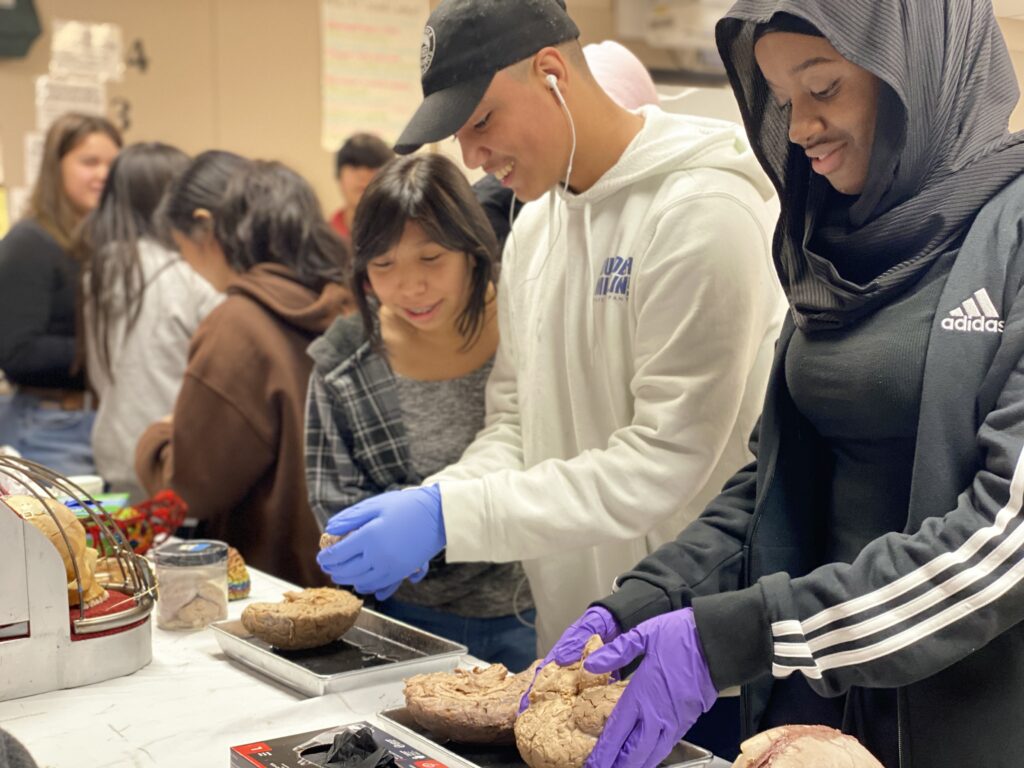
“It is inhumane, in my opinion, to force people who have a genuine medical need for coffee to wait in line behind people who apparently view it as some kind of recreational activity.”
— Dave Barry
Caffeine can wake you up, and we early morning volunteers were hugely grateful to Fort teachers who provided us with local brew. However, the use of caffeine can also disrupt sleep and may lead to an unfortunate cycle of caffeine dependence. I know that I wasn’t fully aware of the impact when I was in my teenage years and I probably consumed more caffeine on average, since I also worked at a coffee shop. It’s clear that lack of sleep plays a huge role in mental health and the prevention of mental health disorders. So it’s no surprise that better sleep is one way that mental health can be improved.
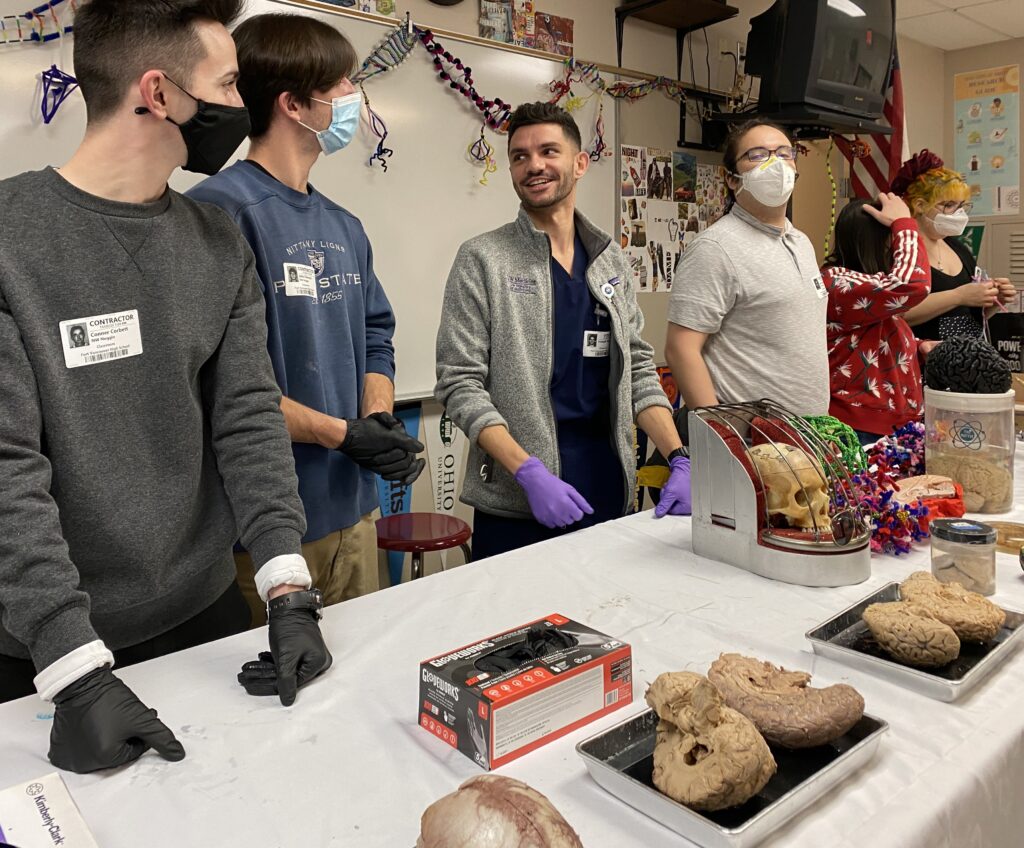
HOW DOES CAFFEINE AFFECT THE BRAIN?
LEARN MORE: Tipsy Buzzed Mice @ Street 14
LEARN MORE: Wide awake at bedtime? Effects of caffeine on sleep and circadian timing
LEARN MORE: Sleep Patterns and Mental Health Correlates in US Adolescents
Besides caffeine there were questions about other substances, which prompted lively discussions about psychedelics, cannabis and addiction in the brain.
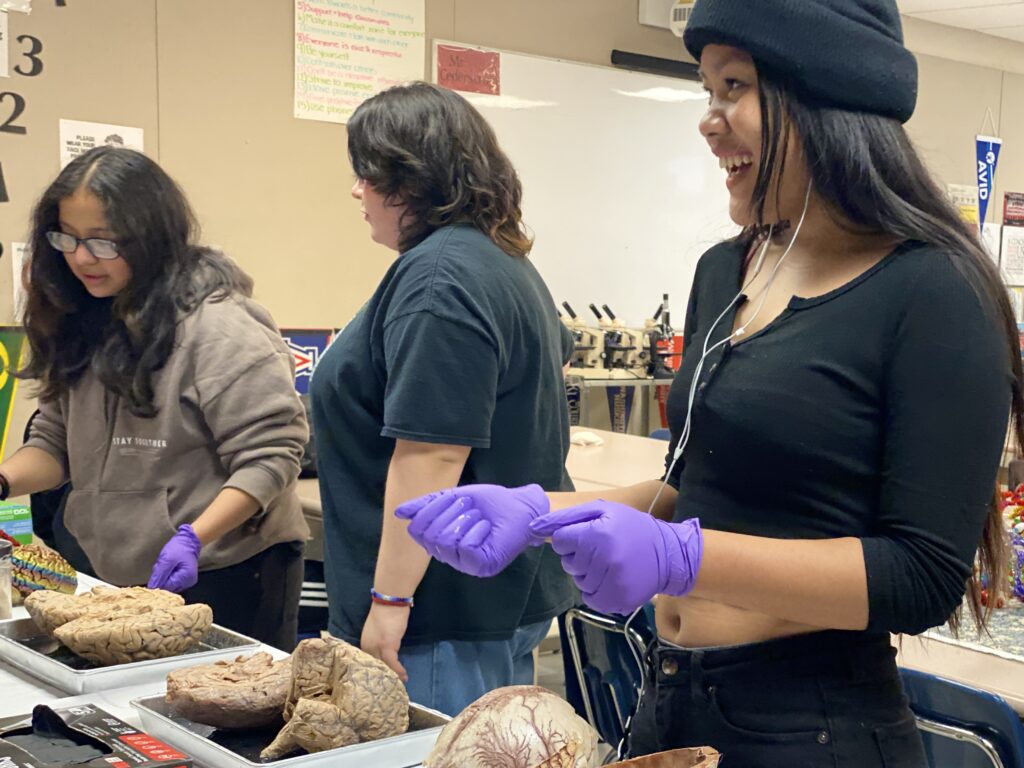
Addiction, now more commonly termed substance use disorder, can impact those struggling with their mental health or a diagnosis of a mental health disorder. Unfortunately, there are a lot of misconceptions surrounding illicit substances. One example is cannabis, which remains classified as a Schedule I drug by the United States Drug Enforcement Administration. Schedule I suggests that a drug has no medical benefit and a high potential for abuse. However, even though more research is needed, many studies find significant medical benefits to using cannabis, though it is not recommended for an adolescent’s growing brain. When regulations like this don’t match up with reality, it can be confusing, and cause distrust as well as a reluctance to follow helpful guidelines related to substance use.
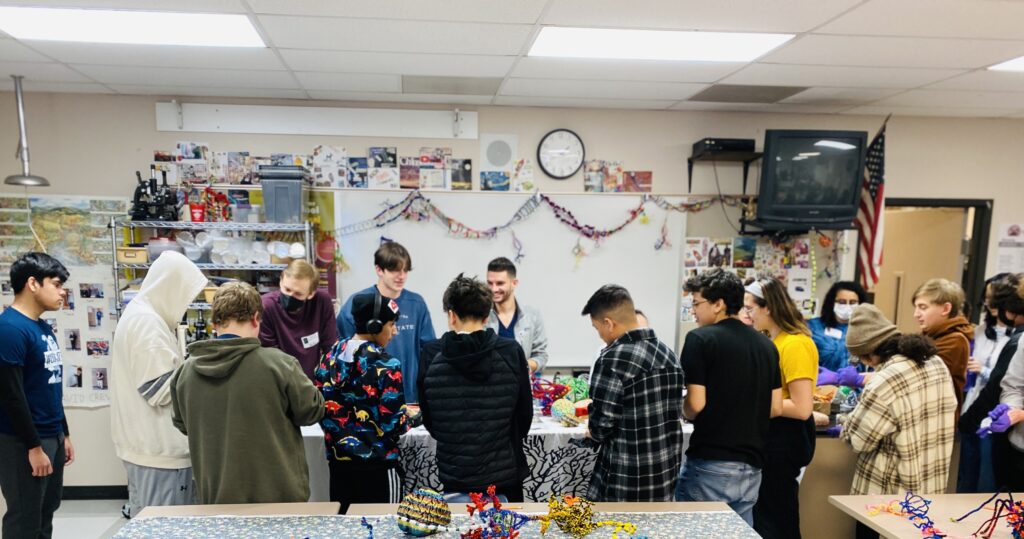
LEARN MORE: Substance Use and Co-Occurring Mental Disorders
LEARN MORE: Childhood Psychiatric Disorders as Risk Factor for Subsequent Substance Abuse
LEARN MORE: Drug Enforcement Agency (DEA) Drug Scheduling
LEARN MORE: The effectiveness of self-directed medical cannabis treatment for pain
LEARN MORE: Is the Adolescent Brain at Greater Vulnerability to the Effects of Cannabis?
One of the teachers brought up online learning and what the effects might be for students. During the height of the pandemic schools relied on remote learning. While this may have helped students stay safe from COVID-19, the social aspect of school was no longer available in the same way. Instead of in-person interaction, social media began to fill the gap left by physical gatherings. Being able to utilize the internet is incredible and can connect people all over the globe. Having a sense of community, even online, can do wonders to make someone not feel isolated.
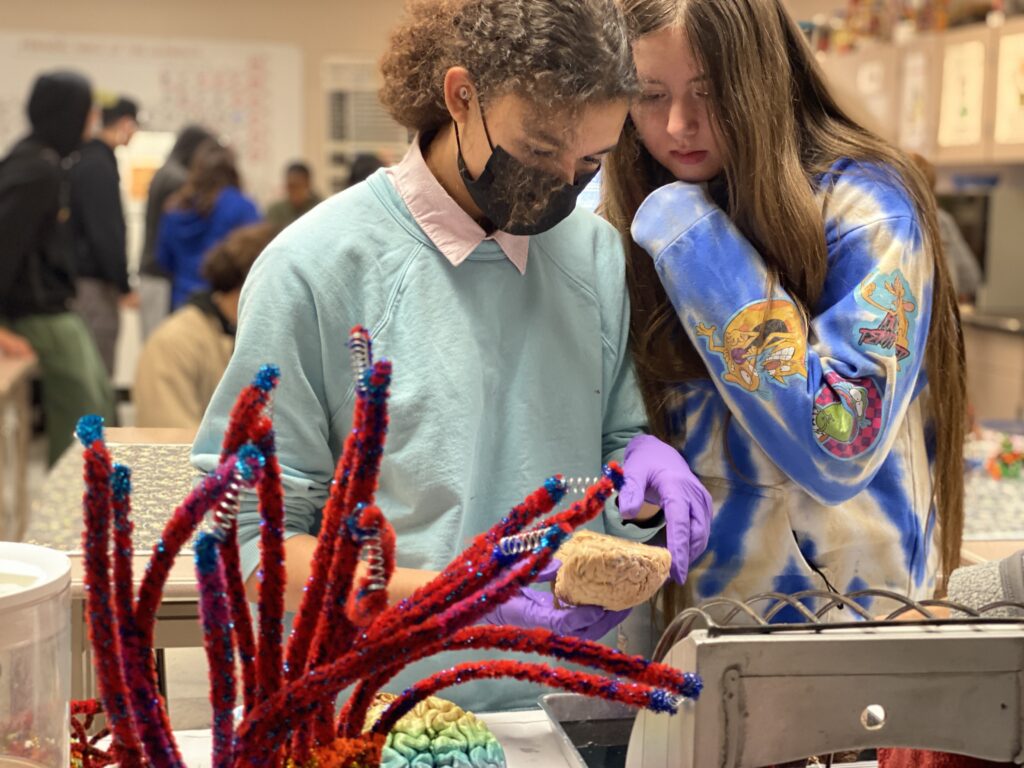
But one particularly negative impact of the pandemic – and the increased screen time required by online learning – is a documented decline in vision! Definitely a good idea to limit screen time.
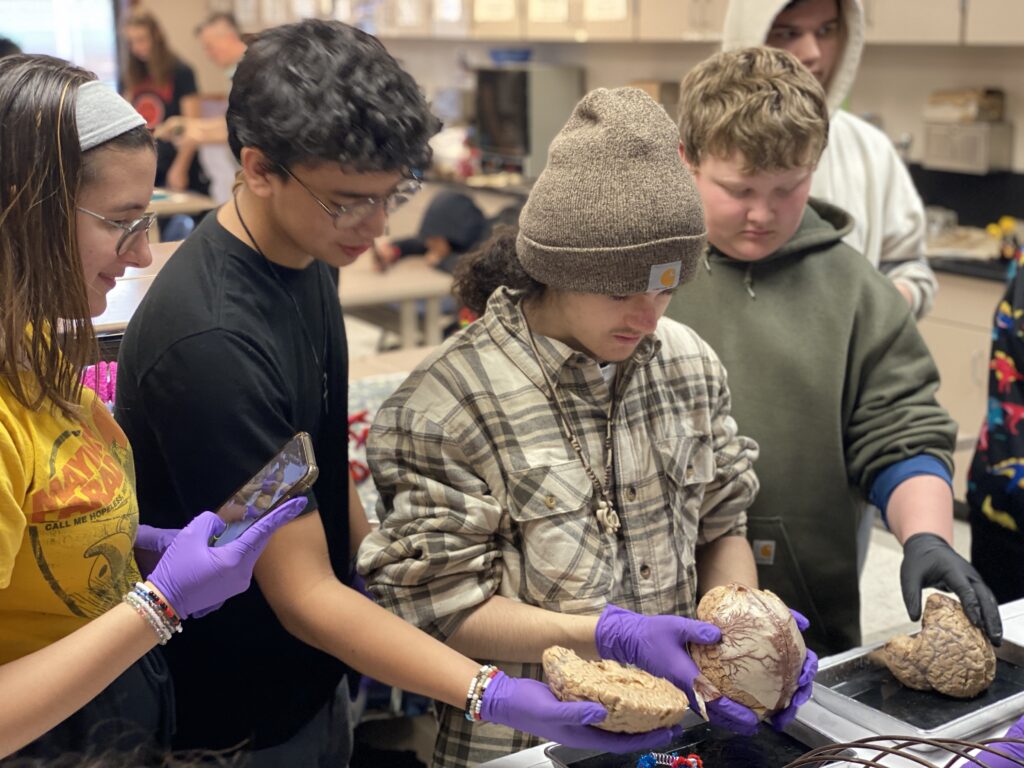
“Increased dependence on digital devices for online classes has either induced or exacerbated visual disturbances, such as rapid progression of myopia, dry eye and visual fatigue symptoms, and vergence and accommodation disturbances, in children who engaged in remote learning during the COVID-19 lockdown.”
— Effects of remote learning during the COVID-19 lockdown on children’s visual health
Many factors impact our mental and physical health and I was often unaware of them when I was in high school. I would have loved to have taken part in such an interactive science experience when I was a teenager. I think it might have sparked a curiosity in neuroscience sooner in my life. A similar interest can was seen through the excitement of the students and it was definitely contagious.
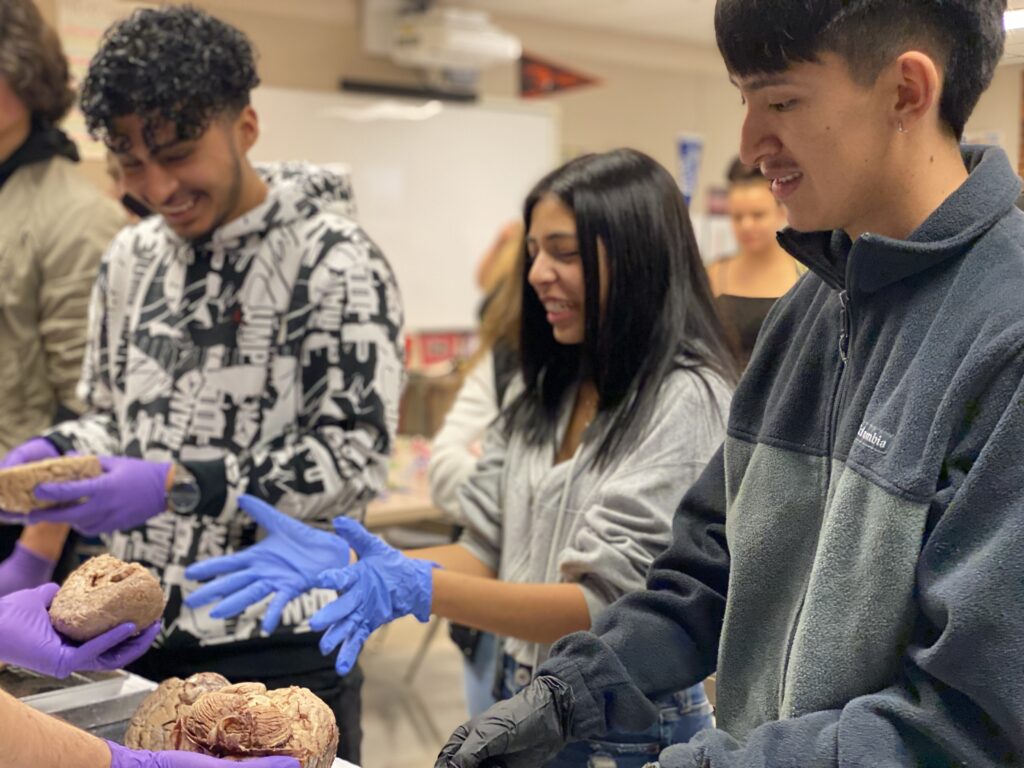
Kristen, who also volunteered that day said, “Holding a real human brain is often a once-in-a-lifetime occurrence and it was a joy to see them making these memories and impressing upon them the reality that the brains used to belong to actual humans!”
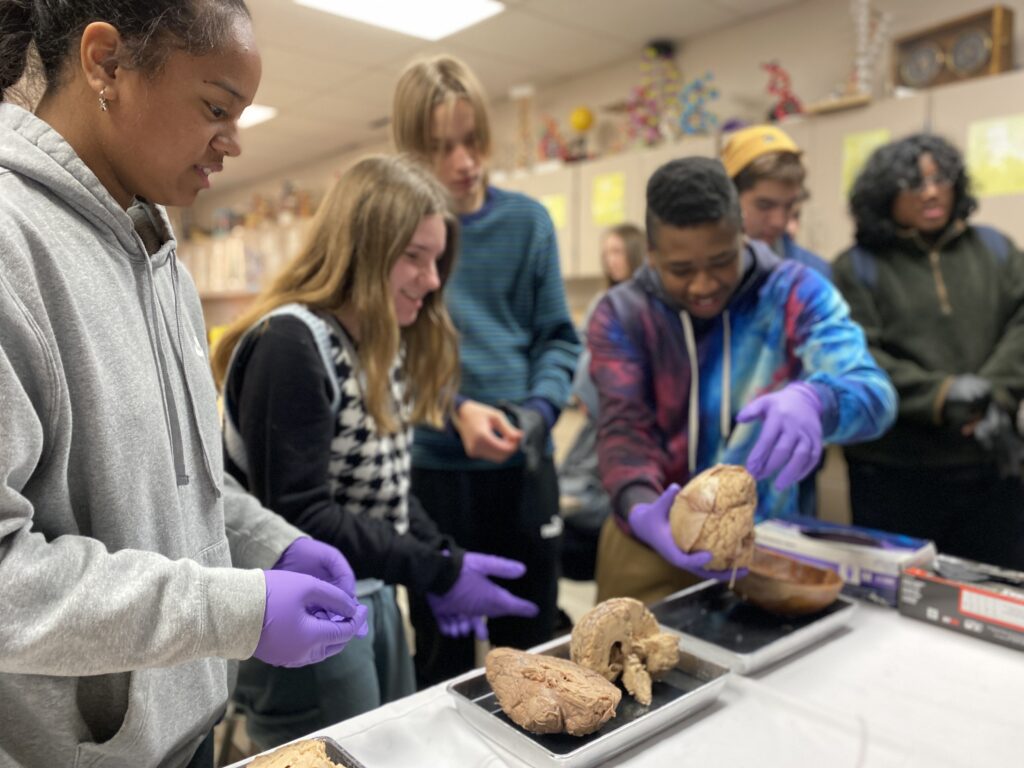
I couldn’t agree more with Kristen’s comment. No matter how many outreach visits I make, I will never be able to get over how incredible it is to be able to share this experience with the students.


